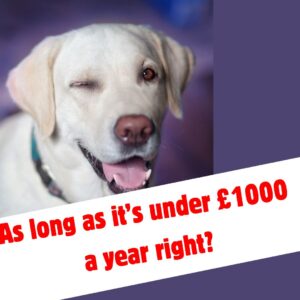Surprisingly the answer is yes, but with some very strict guidelines including the fact that the money from all your self-employment income streams must not exceed £1000 per year before expenses. Let’s look at the details.
Table of Contents
What is the £1000 trading allowance?
In the UK we have something in our tax system called a trading allowance. This tax free, non reportable allowance is currently £1000 per year and it means that if an individual earns less than £1000 from something, such as a side hustle to their (PAYE) job, then they don’t need to register as self-employed with the HMRC.
The £1000 trading allowance is basically a tax break for small businesses and people who make a little extra money on the side in the UK.
- If you earn £1000 or less per year from self-employment, casual jobs (like babysitting or mowing lawns), or selling things online, you don’t have to pay taxes on that income.
- It’s like a freebie amount the government allows you to keep.
- You don’t even need to report this income to the tax people (HMRC) if it stays under £1000.
However, in the dog walking and dog boarding industry, this trading allowance is sometimes misunderstood.
Can I board dogs without a licence as long as I don’t earn £1000?
Yes (See the Official Government Guidance notes here) The wording is as follows;
“If someone has a trading income below the HMRC trading income allowance, they do not require a licence for their activities.”
BUT… the income from boarding dogs, combined with any other side hustle or self employed income from the year, must not exceed £1000 before expenses.
Example; You cannot be a self employed dog walker and board dogs without a licence unless your combined income from all sources is under £1000 per year. You cannot split your income into walking and boarding in an attempt to keep the dog boarding income under the £1000 threshold.
I know what you’re thinking. What if I do the dog walking and my partner does the dog boarding? Sorry, HMRC has that covered too.
When you cannot use the allowances
You cannot use the allowances in a tax year if you have any trade or property income from:
- a company you or someone connected to you owns or controls
Source; https://www.gov.uk/guidance/tax-free-allowances-on-property-and-trading-income#trade
Can each person in a couple use the allowance every year, effectively doubling it?
Although the allowance is per individual, not per household and each person has their own £1000 limit for tax-free income, it’s the combined income from these activities is considered together when assessing tax liability.
Why do they combine it if it’s an individual tax allowance?
Preventing abuse: The allowance is meant to offer a small tax break for individuals who occasionally engage in minor trading activities. Combining income would allow couples, families, or even roommates to potentially exploit the system by splitting up their income from a single shared activity to fall under the individual £1000 threshold.
Can I use the trading allowance twice for two businesses?
No.
For example; If you are an employee with a job, but want to do some dog walking as a side hustle then you can earn up to the £1000 trading allowance without registering as self employed.
If you decide to start buying and selling on Vinted you cannot use the trading allowance a second time. All of your income outside of being an employee is added together for tax purposes.
So if you earn £800 dog walking and £800 on Vinted then combined you earned £1600 and have to register as self employed.
If you earned £400 dog walking and £500 on Vinted, combined this is £900 and you don’t need to register as self employed.
It’s not the type of income you earn, or from what sources that are the main focus for HMRC, it’s purely the amount of income and the trading allowance is per individual per year.
And don’t forget that it’s gross income, so all your income from all sources BEFORE you take off expenses.
One last point, as in everything in life, remember… Just because you CAN doesn’t mean you SHOULD 😉
*It’s important to seek advice from a tax professional or accountant to ensure that you are meeting all your obligations as a sole trader and complying with relevant tax laws.
AFFILIATE DISCLAIMER
The dog walking coach website is supported by our visitors. Some of the product links on this website are through affiliate schemes such as Amazon. This means that I earn a small commission if you choose to purchase something at no extra cost to yourself.
